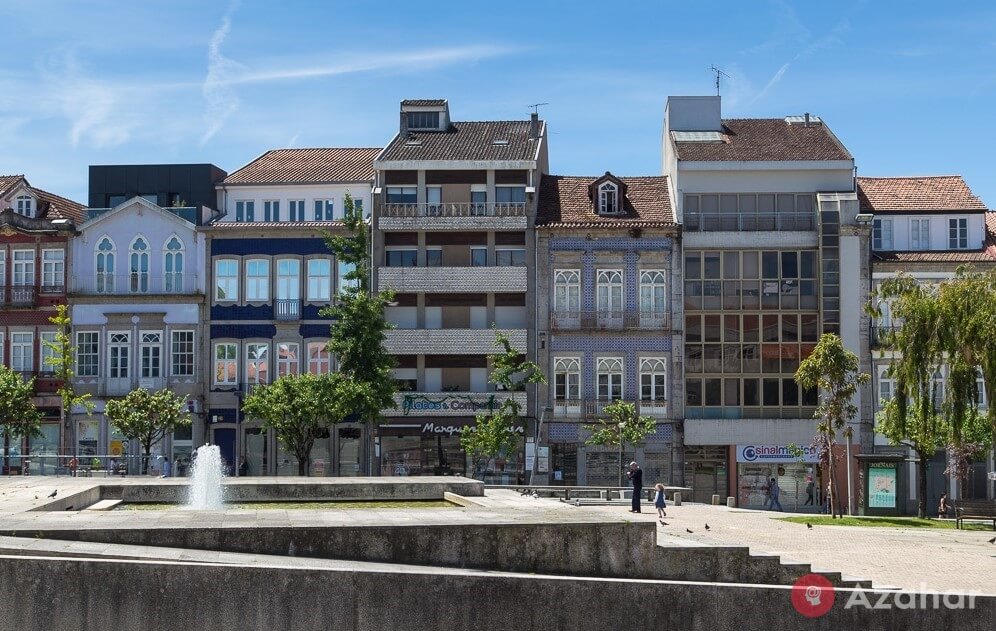Braga - Portuguese, Rome, where they love to keep the doors open
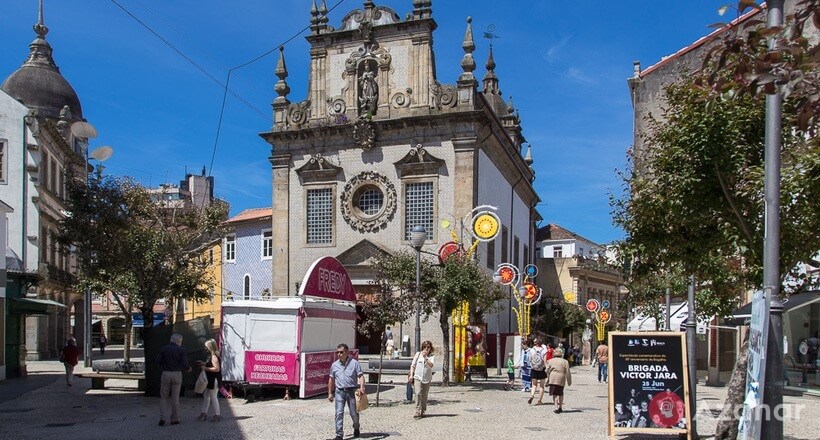
Rome: “They trade in Lisbon, work in Porto, study in Coimbra, and pray in Braga,” A local saying. In the atmosphere of provincial serenity in the streets of Braga, a cacophony of church bells bursts in, reminding hapless tourists that the oldest city founded by the Romans is not without reason called the religious center of Portugal.
Braga where people love to keep the doors open
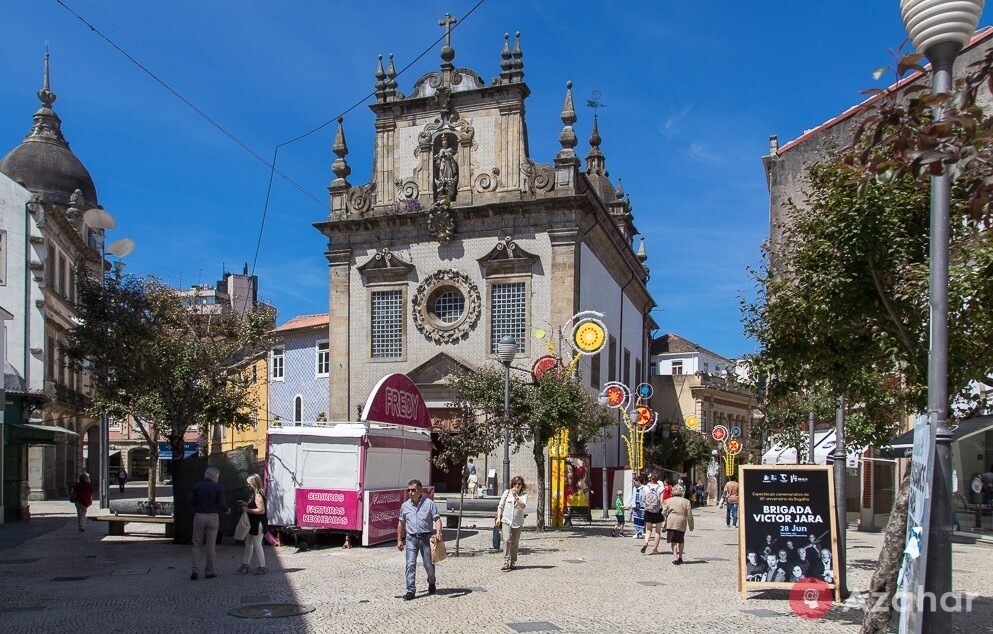
"Braga is a city of contrasts, where rich historical and spiritual heritage coexists with the boundless energy of the students. The concentration of young people here is the highest in Portugal, thanks to one of the largest universities in the country.
In addition to three dozen churches and basilicas that brought Braga unofficial nickname of "Portuguese Rome", the city is able to enchant the traveler with a labyrinth of narrow streets of the old town, magnificent Baroque buildings and cozy, picturesque parks, delicious local cuisine and fantastic shopping, and explore all of the legends and hidden corners of Braga in a relaxed atmosphere — a real pleasure."
About such fusion expression showered with praises the third largest city of Portugal travel portals and travel guides. We selected a day from the Port appeared not crowded and decorated in anticipation of the next upcoming Catholic feast of the street with imposingly strolling pensioners, and the vaunted youth spirit and did not smell. Did the resurrection, the sweltering heat, or the fact that walking route almost did not get out beyond the Old town?
Not feeding any transcendental illusions and not building specific plans for the looting of Braga, we took a commuter train at the Port and after an hour, going without any hesitation and conspiracy through the main entrance under the arch of Porta Nova, disappeared in the vast web of the historical center.
If you believe the experts, the Romans founded the city under the name of Bracara August on the site of a former Celtic settlement a little more than two thousand years ago. Located on one of the main roads of the Iberian Peninsula, the city, named in honor ruled in those years of Octavian Augustus, was briefly the administrative center of the Empire and the capital of the province Gallaecia.
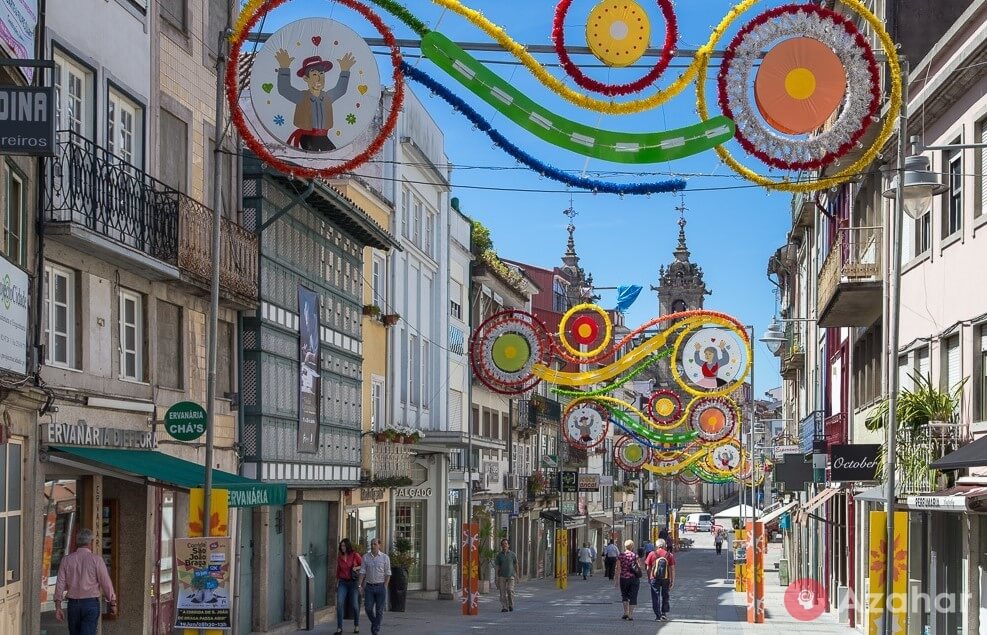
We live in relatively calm times, when the political map of the world has more or less settled down, local armed conflicts and civil wars do not lead to large-scale cutting off of tasty morsels from one country in favor of another.
And about dashing years with mass conquests, colonization, and inflexible semi-wild tribes we learn first from the pages of school textbooks, then superficially from blogging pretentious notes, from the TV series shot with varying degrees of quality and realism, and at best, detailed and in-depth knowledge comes from highly encyclopedic scientific articles and TV shows.
Now to expand our possessions means to move the fence unnoticed at night at a dacha to a neighbor's garden or to build an extension, a balcony on the first floor of a panel high-rise building. In your hometown, perhaps they want to travel a lot and assimilate, but not to capture it, rename it and radically change their lifestyle. Many people claimed Braga.
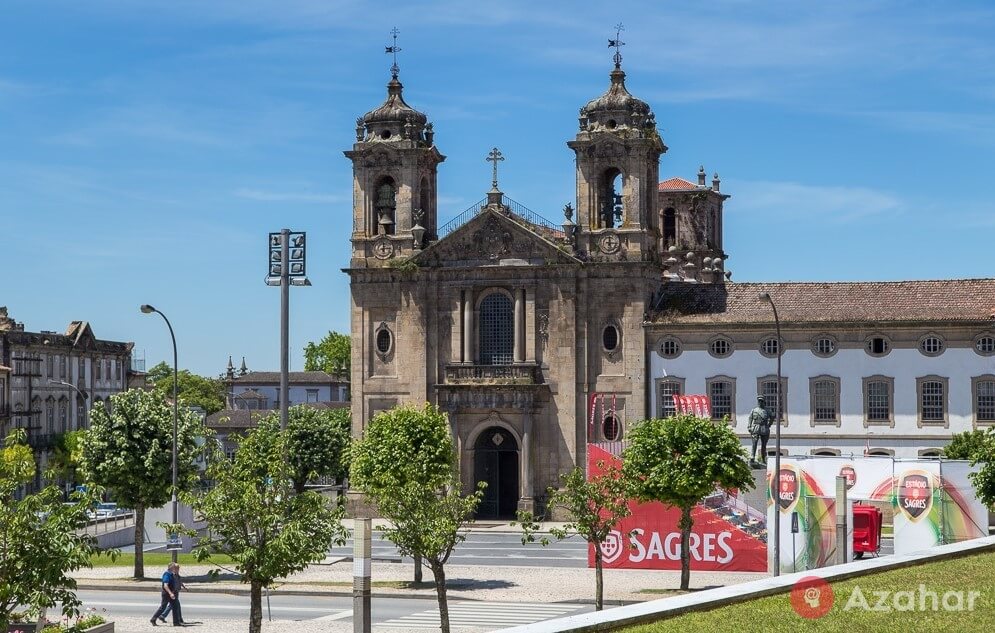
There was no Asterix and Obelix for the Germanic Svev tribe to capture Bracara, the local druid did not invent the recipe for magic potion either. They had to wait patiently for the fall of the Roman Empire, after which the capital of Galleria fell into their hands by itself, like manna from heaven.
The Svevo was merged with other tribes and went together to the East to RAID and loot honest people, bringing wealth back to Bracero. An end to the excesses laid the Visigoths, after three centuries themselves losing Bracero the Moors. And after the initial stage of the Reconquista, about IX century, Braga is a full-fledged status as a Portuguese administrative unit and of Roman times show only a few basements in the suburbs, Yes, the notorious comparison with the eternal city suggests that not only on the density of religious buildings per square kilometer is about.
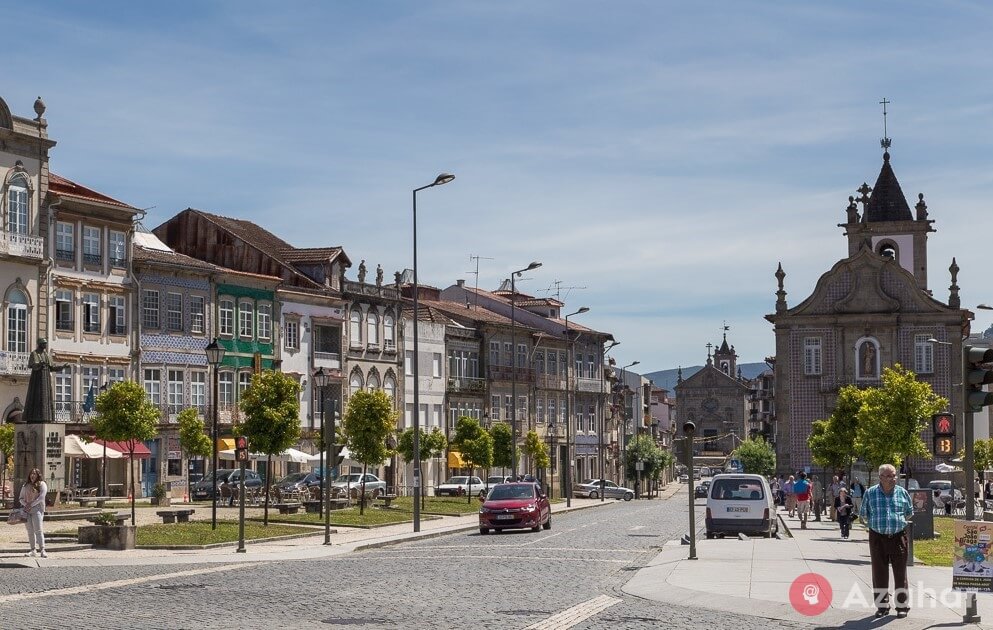
By the way, even the most Patriotic inhabitants of Braga, of which there are, I'm 100% sure many, such a comparison is certainly flattering. But Braga is a city to the bone Portuguese, with a large and impressive, but not flashy and not emotionally swinging hands, the letter "P"; there is clearly honor your halo of the oldest Portuguese cities and the important role that played Braga in the spread of Catholicism in the Iberian, now the Iberian Peninsula.
So let Rome remains Rome with the papal throne in the Vatican, and the original Braga Braga, besides three dozen churches in the city of 130 thousand people is not so an impressive figure.
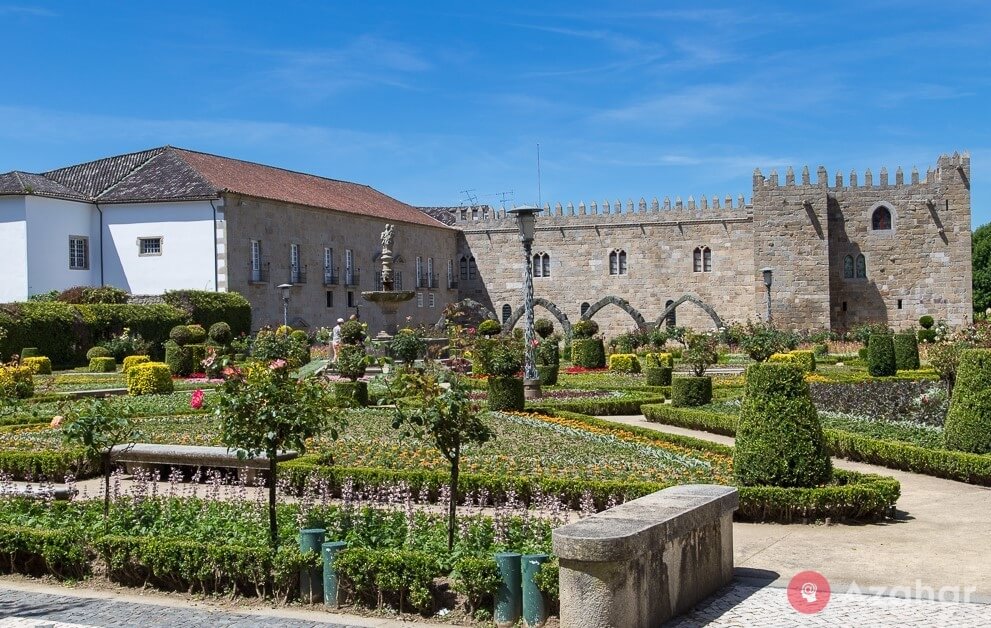
The second annoying nickname Braga also has a religious connotation — the "city of archbishops". The first Bishop appeared in Brahe in the late fourth century, still during the reign of the Suevi, professing Arianism, one of the earliest movements within Christianity. And Catholics always were famous for their desire to convert everyone to their faith and the slightest deviation in the interpretation of Scripture forced them to wrinkle their foreheads, to curve and to devise ingenious plans for the substitution of concepts.
The Svevo and possession of Braga after them the Visigoths gradually become Catholics. Instability in the growing influence of the archbishops in the Iberian lands made the attack of the Moors, who brought with them, Islam. After the Reconquista, the religious power of the mash as the center of the diocese has increased dramatically.
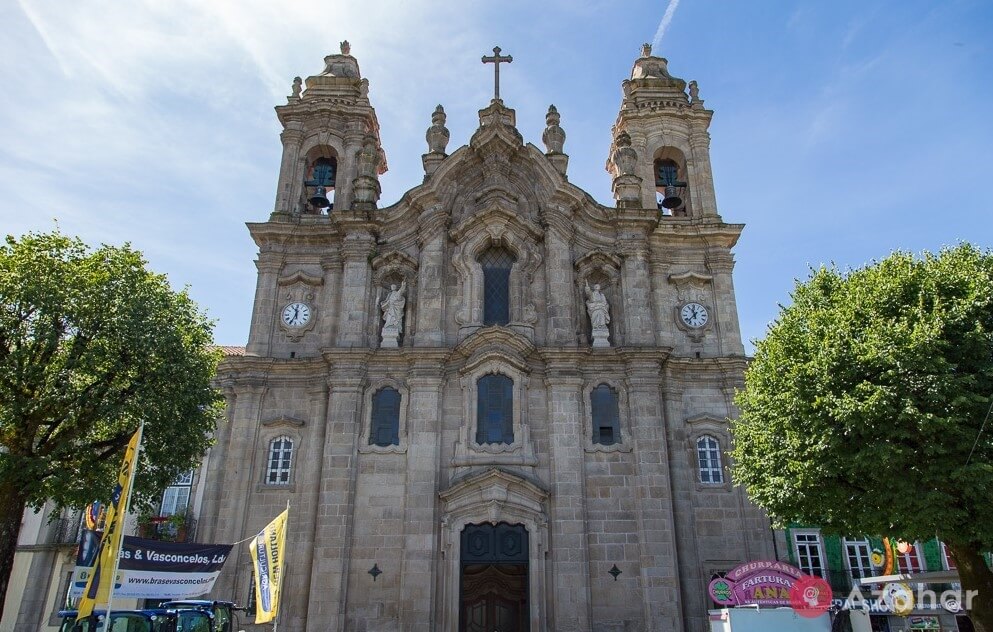
The next milestone in the development of Braga came after the era of Great geographical discoveries. The Portuguese monarchs, the Church was honored, but earned on overseas trade funds is fully on the construction of new churches and the Foundation of monasteries to allocate not in a hurry. Money, despite the respect and importance for the country of the archbishops of Braga, settled almost entirely in Lisbon, where ships full of gold and spices holds and tanned in months trekking in the Indian seas sailors.
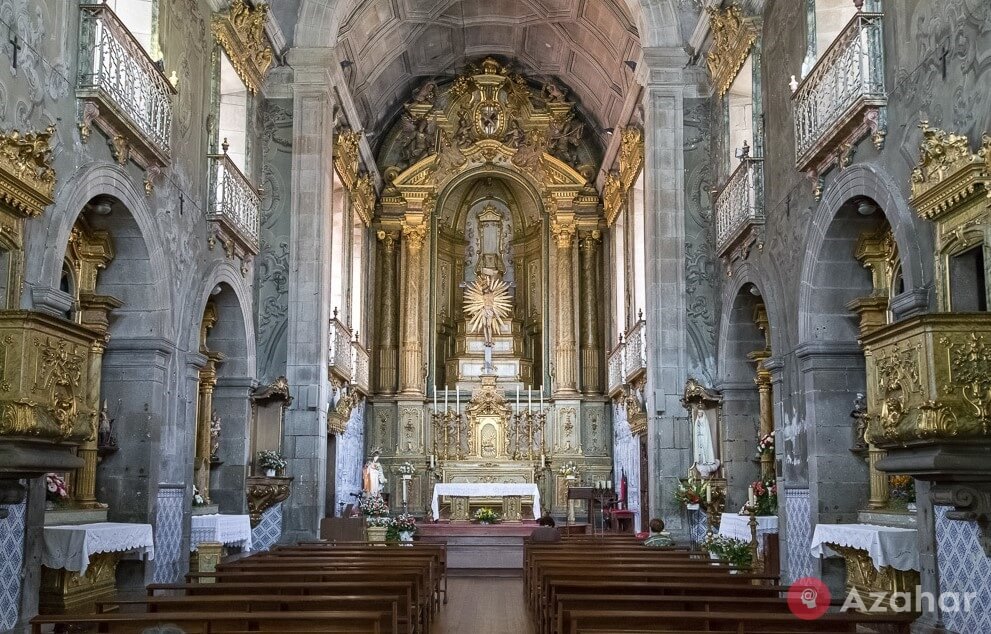
In the early sixteenth century the Archbishop Diogo de Sousa managed to raise funds to start large-scale at that time a program of the renovation was also on the streets and squares, building new churches, was divided gardens. The Archbishop is probably worthwhile to keep beyond this essay, if it was not associated with another Portuguese saying, "You're from Braga, you leave the door open".
By that time, major wars were far behind, and the city has grown far beyond the fortress walls, although the goal for the night was still locked and guarded De Souza was commissioned to create a new gate, extant under the name of arch de Porta Nova, not to close the passage by a massive wooden door. At the end of the street market, and the people of Braga could easily move between the center and other areas, smoothly passing under the arch, as it is now doing all tourists visiting the old town.
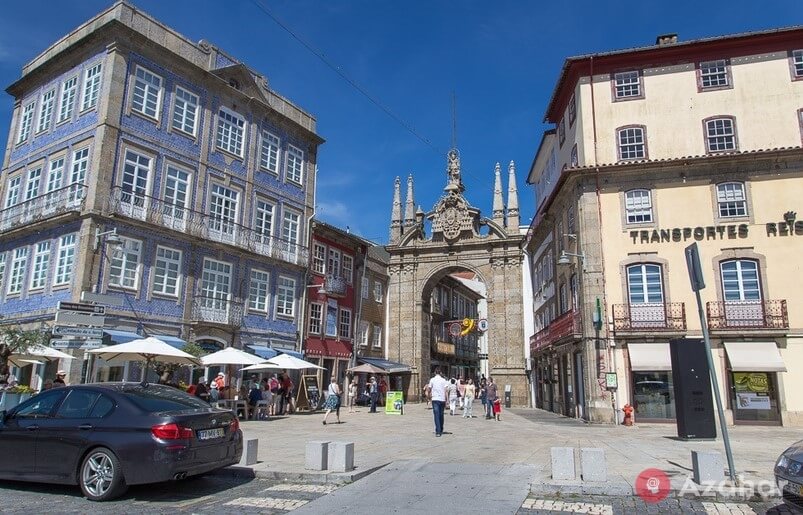
Braga is no exception to the rule, and out stuck the roots in the Middle Ages the legend is crowding out more prosaic and mundane interpretation. In the Minho region, has developed surprisingly strong and friendly relations between residents, in fact, in the villages and small towns similar is observed not only in Portugal and to this day — all each other know and without a theory of six handshakes, who bought what, where did, what is the harvest gathered and with someone who was sick.
To hide anything is pointless, and guests are always welcome, whether a little salt over your neighbor or he'll come by with a proposal to drinking a glass of port. Doors were left open without fear of thieves, and the bunch of keys in his pocket can be safely forgotten.
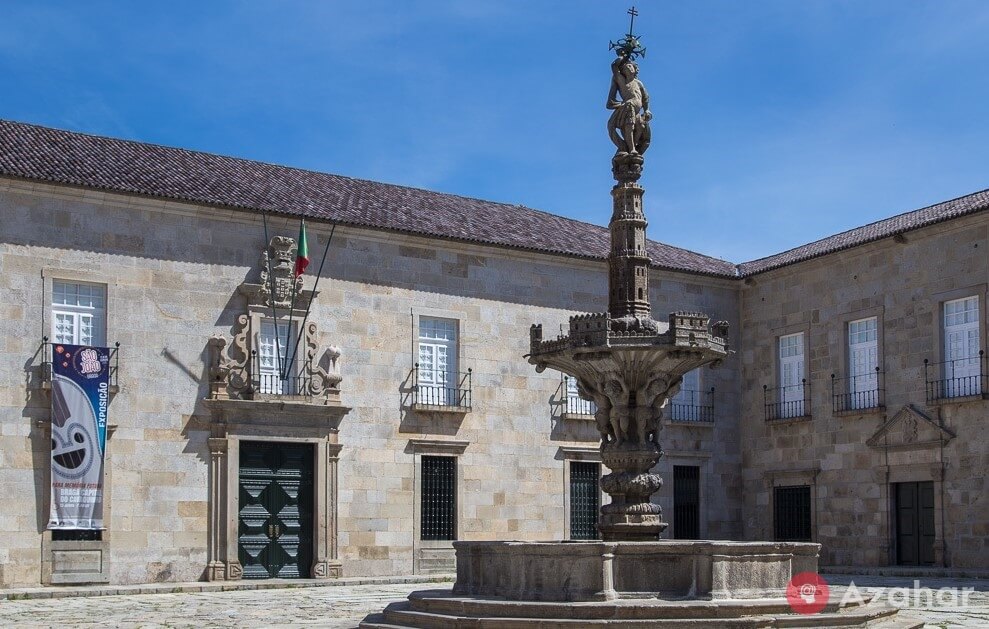
Nevertheless, after the arch leaning away from the slender pensioner's tourist series, walking between the old buildings, we saw the closed shutters and doors of shops on the first floor, on the streets, despite the not so early hour and the output was silent. Whether in churches all the local population is dispersed, or went to each other's homes and to stick his nose out was not going to.
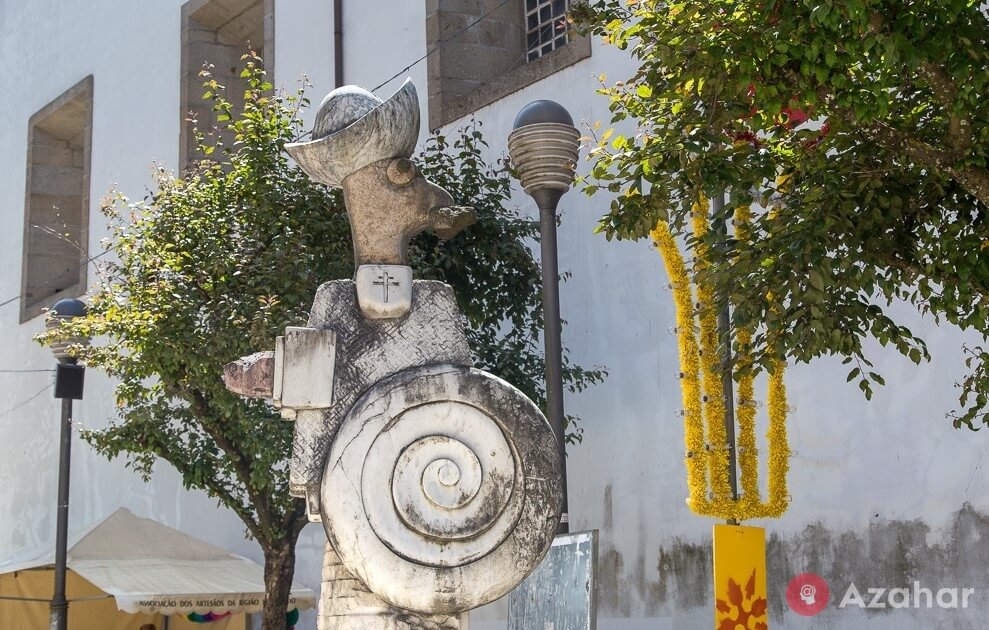
The Chronicles are silent, how the people of Braga managed to take away the King of the Night, and the white walkers of the dragon, Daenerys Stormborn (let me not list all the titles until last season, will not remove), not only as the power of faith. Viserion, kinder, lambs green hills of the Portuguese province prefers hot pasta and traditionally grilled sardines with boiled potatoes. The degree of doneness dragon skillfully adjusts themselves.
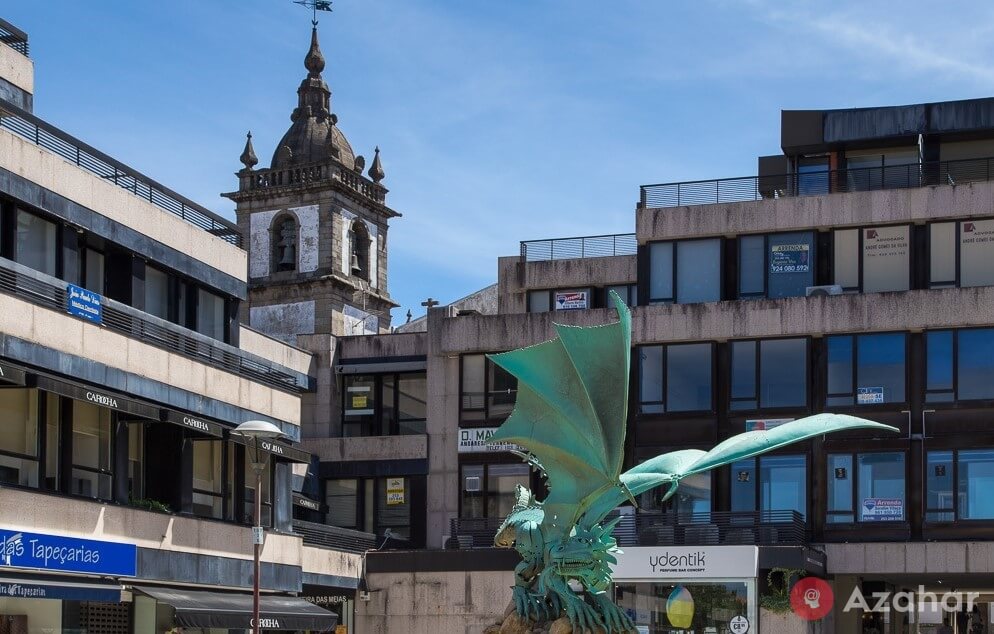
After a raging night and day, Lisbon and Porto provincial cozy Braga appeared a kind of island of tranquility, where the Portuguese move into the second half of life, to spend carefree old age, a turning to God. Not one I thought in the saying Lisbon and Porto swapped?
The status of capital and implies that there is a time for revelry remains only at the weekend but after work, but in Porto, where port wine, coffee, and port wine are offered almost at every corner, and where along the waterfront around the clock is a hubbub, the noise, and fun atmosphere, you know, working resembles very remotely. Emerging from the maze decorated for the Day of St. John streets on one of the Central squares of Braga, we felt some movement.
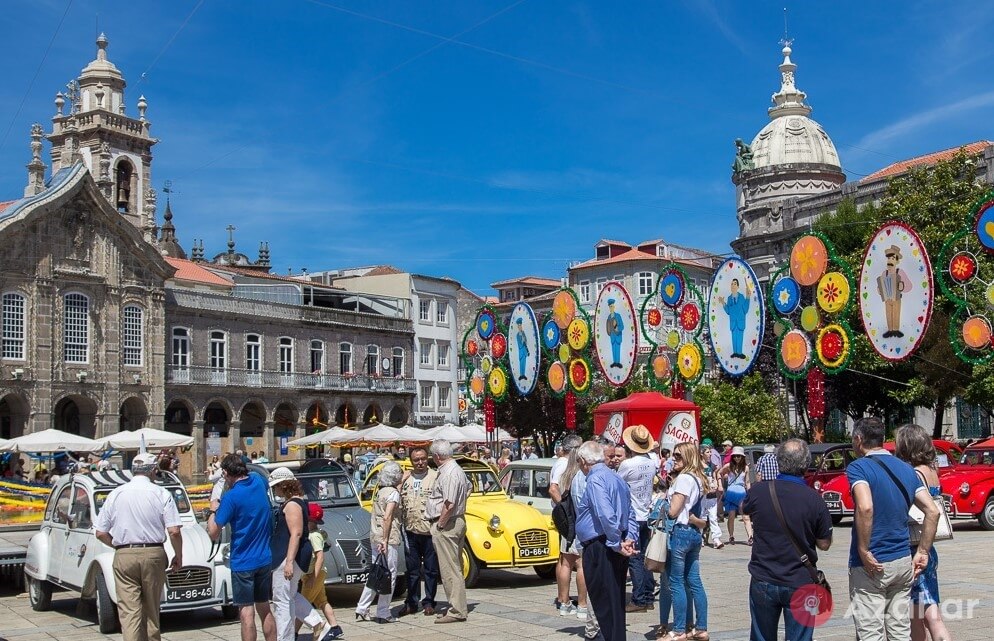
One by one, nobly snorting and gleaming with the polished covering, old Citroens were taxiing around the square. Carefully parked his iron horse in a row like him, elderly motorists gathered in small companies and walked to the nearest cafe for a cup of bicky or something more cooling.
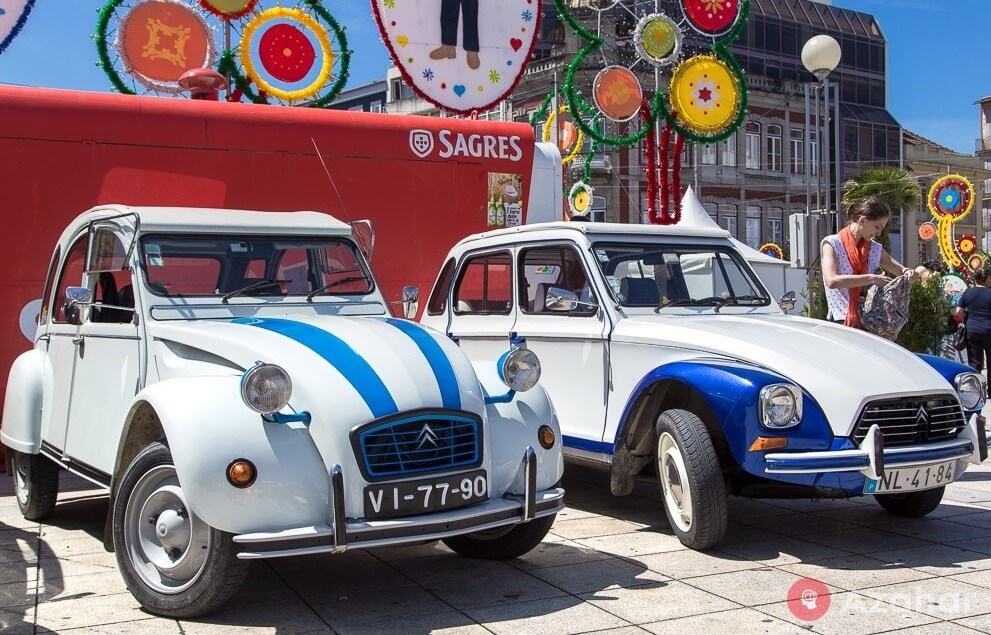
Here the leading correspondent and author of all this disgrace called a travel blog, caught himself thinking that Braga painfully reminds him of small Norwegian towns.
First, severe Vikings also like to barricade themselves on Sundays at home in front of telecom or set-top box and never go anywhere, except that, unlike the hospitable Portuguese, the Norwegians are not friends with everyone. But the doors to their homes are often also not locked up until the theft occurs in the area, of which guest artists from Eastern Europe are instantly accused.
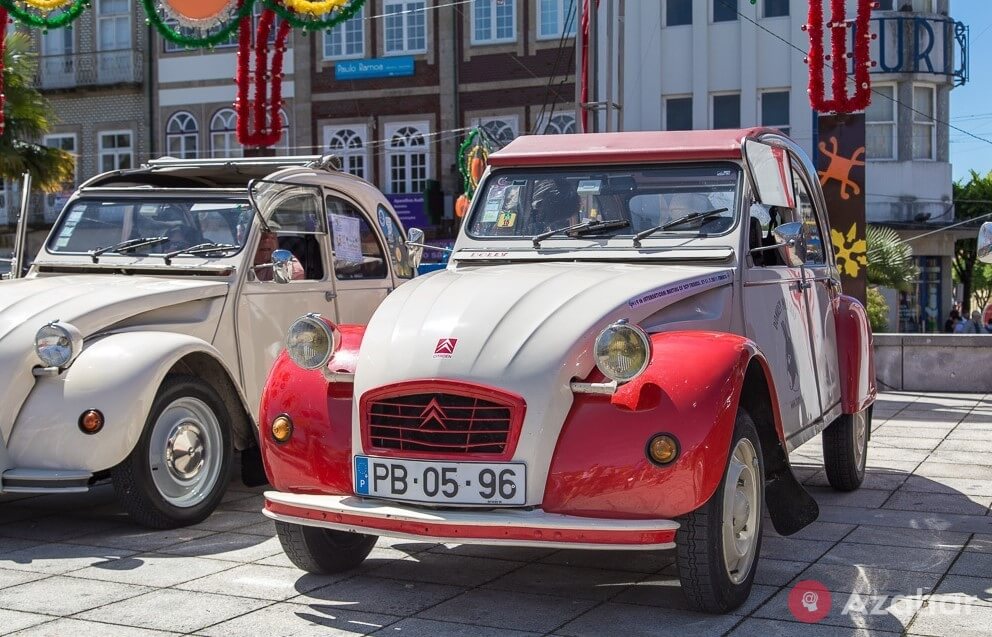
And secondly, on the pension or in anticipation of such Norwegian likes to buy killed in the trash of the ancient car and with love in the garage to restore it for years, to then with style and feeling of elitism on a Sunny day to ride through the cobbled streets, collecting sharp looks of envy.
Norwegians tend to the American car industry, and in Portugal, as it turned out, a lot of fans of the French Citroen. Or just a coincidence, who I will confirm if Braga few people spoke English and ordering food in a cafe after English-friendly Lisbon and Porto turns into an exciting quest.
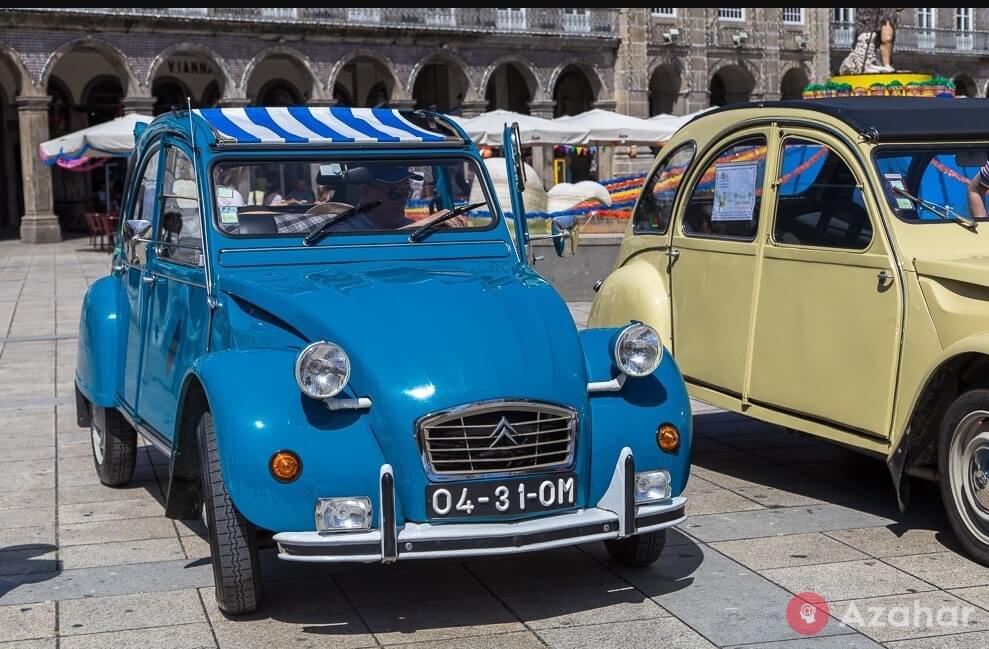
Since the XVIII century, the architectural appearance of Bragi changes the fashionable tide of the Baroque, Gothic, medieval ensemble with splashes of Manueline added new city library, town hall, and churches, one of which later became a center of pilgrimage for being in the suburb of the sanctuary of Bon Jesus up to Monte we observed Braga visit, not particularly eager to visit the others at least the basic and iconic religious buildings in the city, including the oldest in the Braga Cathedral.
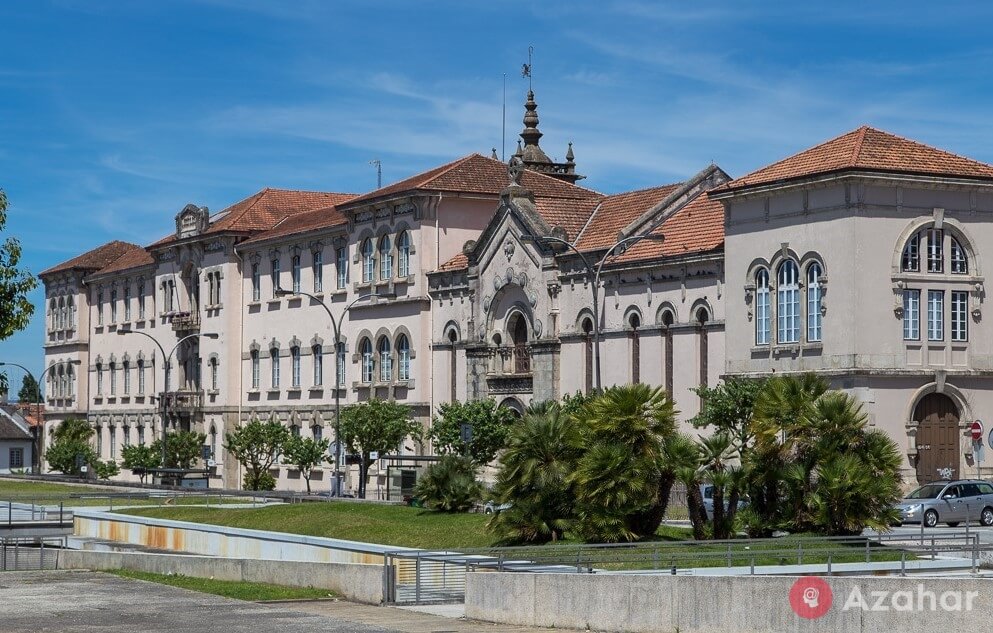
In addition to the Bon, BOM Jesus do Monte was that and many other noteworthy buildings of past times is located away from the station and the Old town, and the hot weather suggests that you should follow the plan and go look for a bus stop for trips to attractive to the pilgrims of the sanctuary on the top of the mountain.
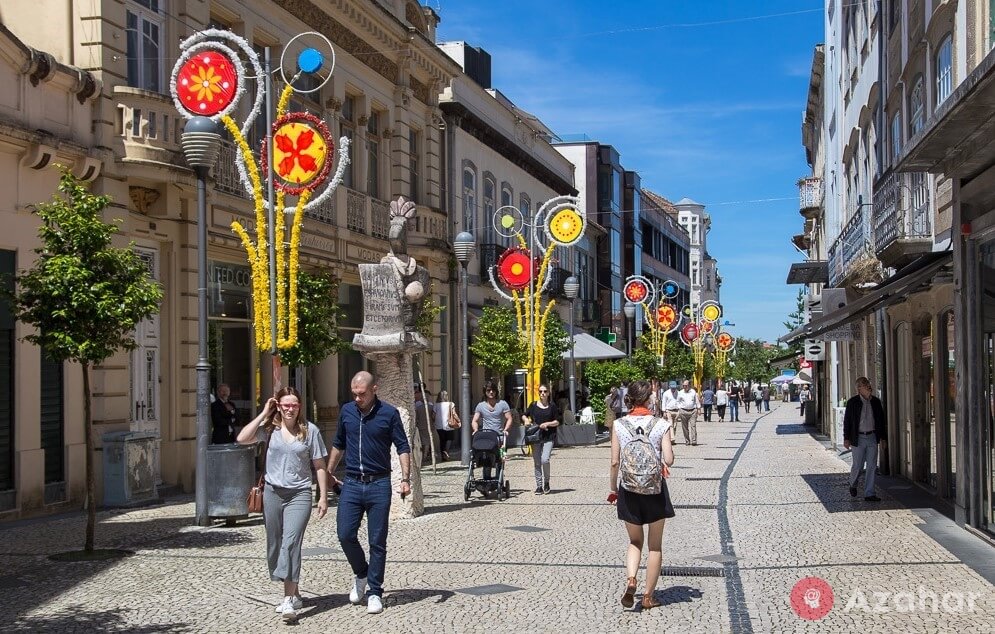
If you ask to submit only one card, clearly showing the Portuguese cities, then from the archives, I will start to get pictures with old houses lined with Azulejus tiles - and the most meticulous art critic will hardly tell wherefrom the proposed fan there is a frame from Braga, from Porto and Of Lisbon.
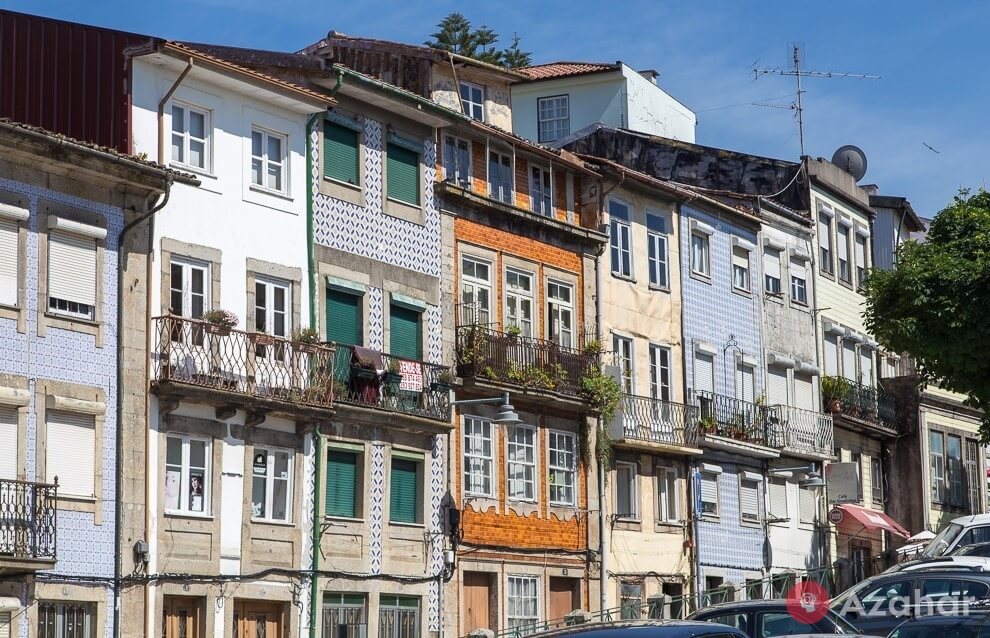
Neither the magnificent Baroque, nor the dark and heavy Gothic, nor the laced and avid on Manueline ornaments give the feeling of Portuguese negligent aesthetics, like rows of low-rise buildings with a predominant blue-white ceramic tile on their facades. For completeness of the entourage, there are not enough typical Italian stretch marks with laundry hanging out to dry.
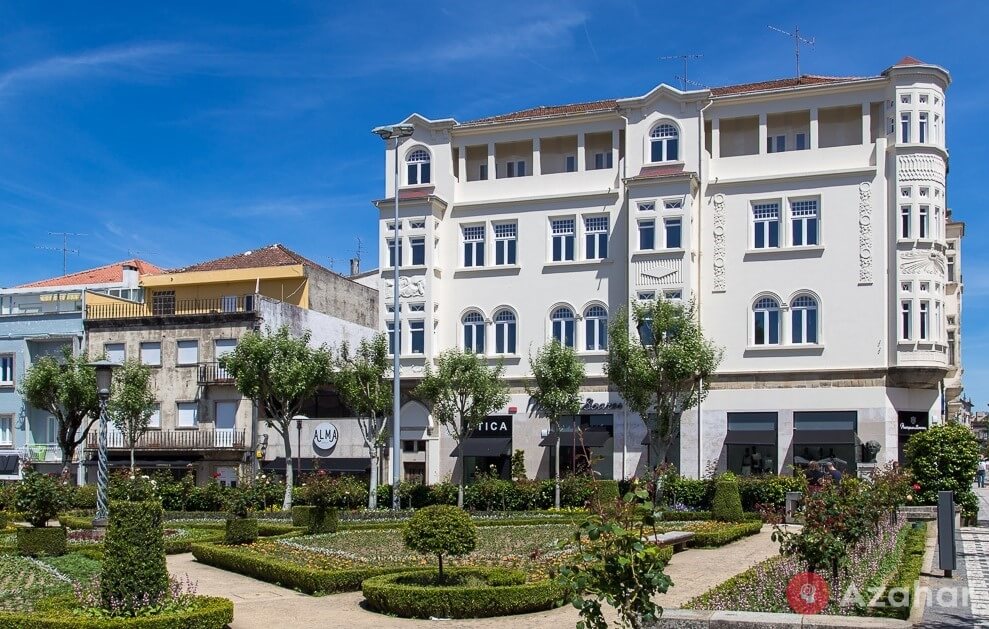
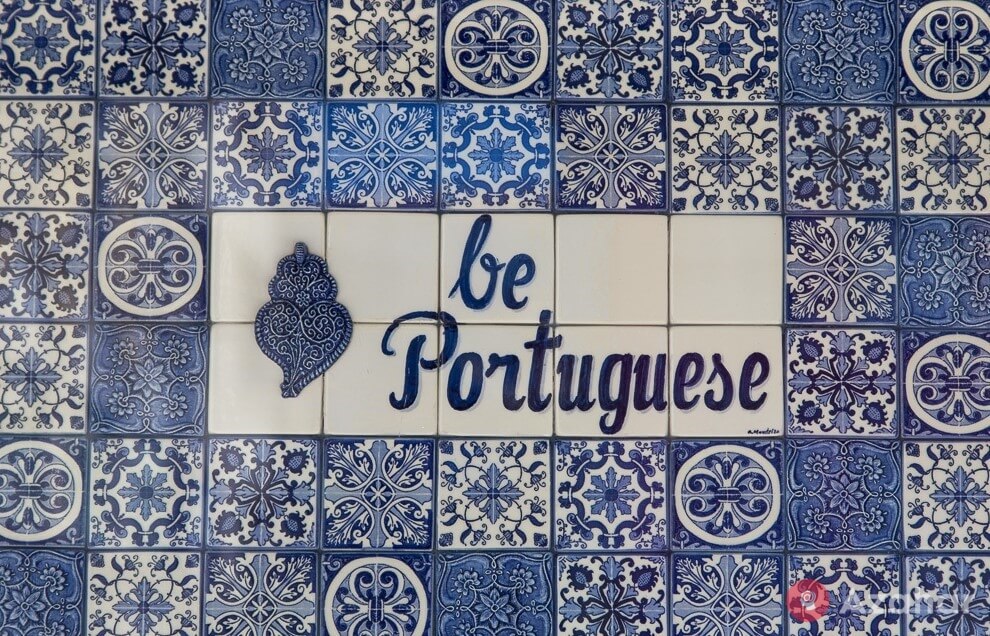
In Braga, you do not feel like a stranger, who, out of a sense of pity, was condescendingly allowed to glance at his territory, as in the Lisbon Alfama, here, on the contrary, practically no attention is paid to you.
The waiters at restaurants do not invite visitors, and when you try in English, especially by simplifying phrases, to ask about the composition of an unknown dish from the menu, they sympathetically keep silent or mumble in Portuguese. In short, Braga is ruled by utter Zen, characteristic of the inhabitants of the non-sun-stricken countries.
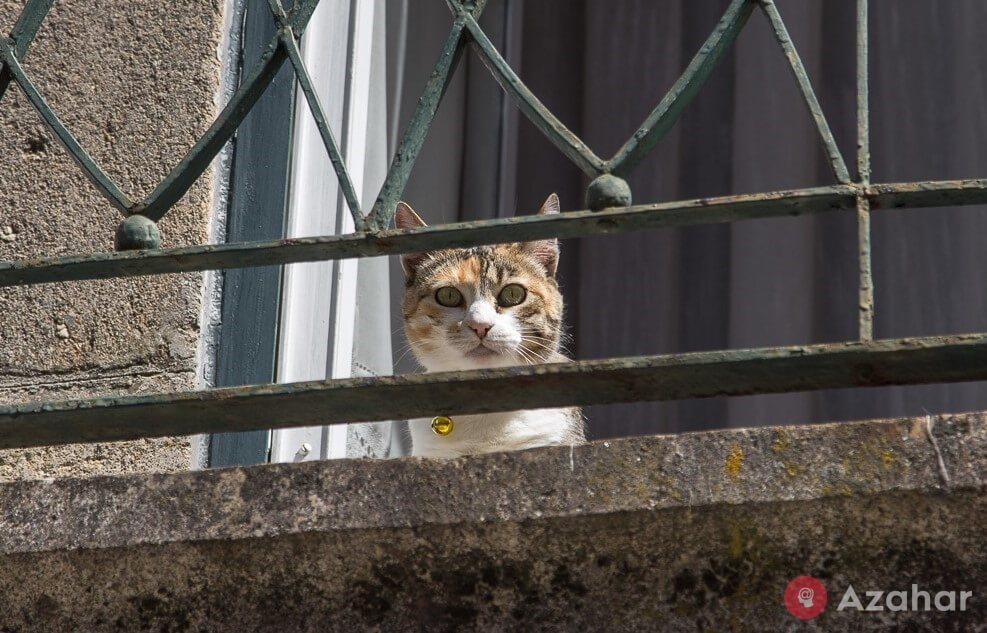
It's time to take stock and give an answer, why include the route through the mainland, in addition to Lisbon’s capital Sintra Palace and Museum, in addition to Cape Rock and steadily pouring over Porto’s collar, is also retired Braga, where youth life is vibrant flows clearly outside the walls of the Old City.
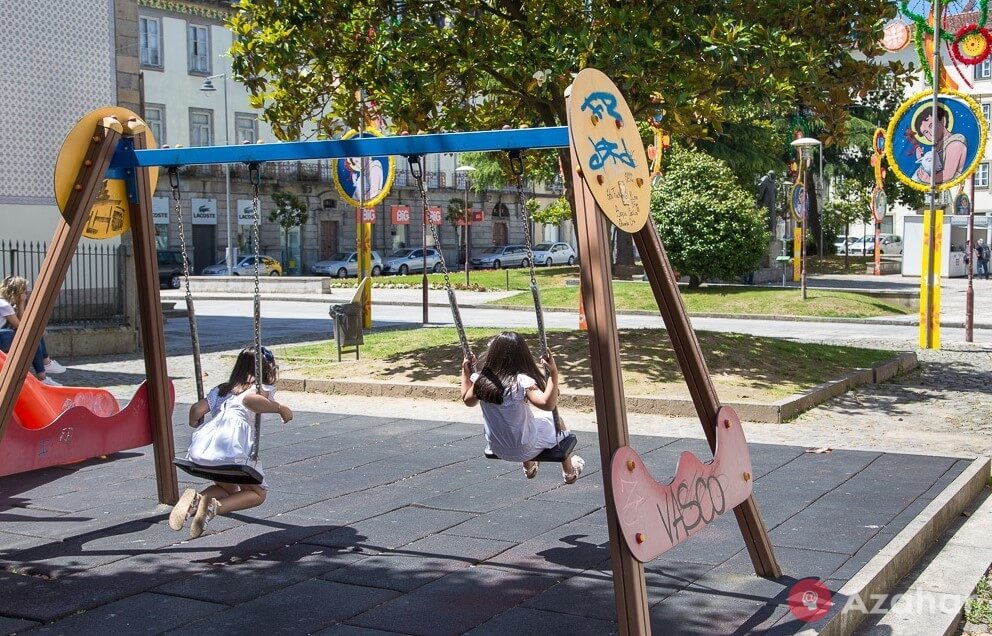
First, Braga is located close enough to Porto, and to drive for a change on a day on the train to see another city will never seem odd to travelers. Secondly, the status of the oldest city in Portugal and the abundance of historical attractions for fans to walk the guidebooks will provide entertaining and informative leisure. Only in this case, it would be better to take care of renting a car or thoroughly explore the routes of local public transport.
